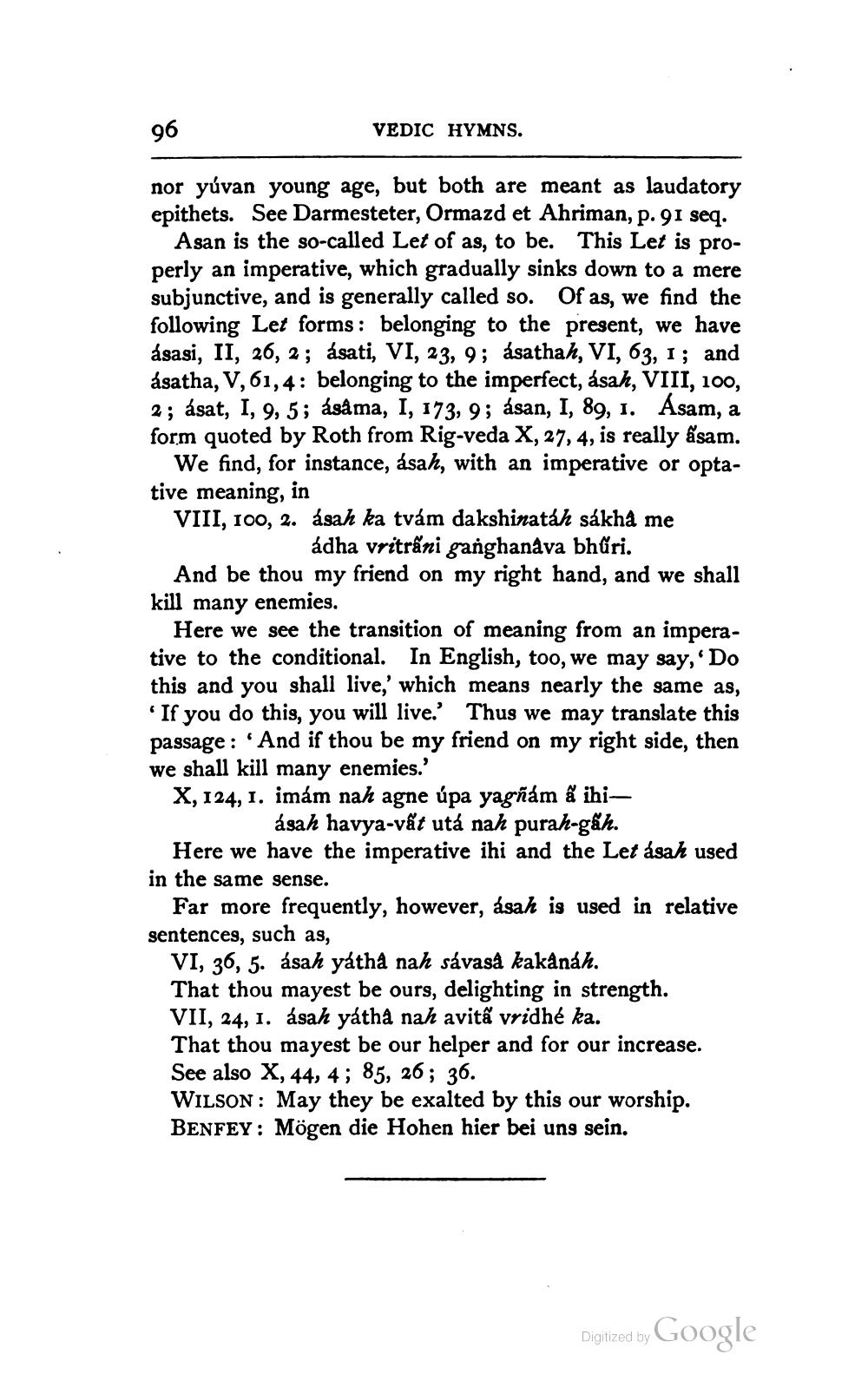________________
96
VEDIC HYMNS.
nor yúvan young age, but both are meant as laudatory epithets. See Darmesteter, Ormazd et Ahriman, p. 91 seq.
Asan is the so-called Let of as, to be. This Let is properly an imperative, which gradually sinks down to a mere subjunctive, and is generally called so. Of as, we find the following Let forms: belonging to the present, we have ásasi, II, 26, 2; ásati, VI, 23, 9; ásathah, VI, 63, 1; and ásatha, V, 61,4: belonging to the imperfect, ásah, VIII, 100, 2; ásat, I, 9, 5; áså ma, I, 173, 9; ásan, I, 89, 1. Asam, a form quoted by Roth from Rig-veda X, 27, 4, is really å sam.
We find, for instance, ásah, with an imperative or optative meaning, in VIII, 100, 2. ásah ka tvám dakshinatáh sákhà me
adha vritrâni ganghanava bhari. And be thou my friend on my right hand, and we shall kill many enemies.
Here we see the transition of meaning from an imperative to the conditional. In English, too, we may say, 'Do this and you shall live,' which means nearly the same as, 'If you do this, you will live.' Thus we may translate this passage: 'And if thou be my friend on my right side, then we shall kill many enemies.' X, 124, 1. imám nah agne úpa yagñám å ihi--
ásah havya-våt utá nah purah-gah. Here we have the imperative ihi and the Let ásah used in the same sense.
Far more frequently, however, ásah is used in relative sentences, such as,
VI, 36, 5. ásah yátha nah sávaså kakanáh. That thou mayest be ours, delighting in strength. VII, 24, 1. ásah yátha nah avitã vridhé ka. That thou mayest be our helper and for our increase. See also X, 44, 4; 85, 26; 36. WILSON: May they be exalted by this our worship. BENFEY: Mögen die Hohen hier bei uns sein.
Digitized by
Digitized by Google




